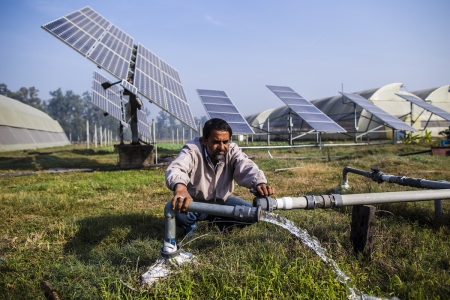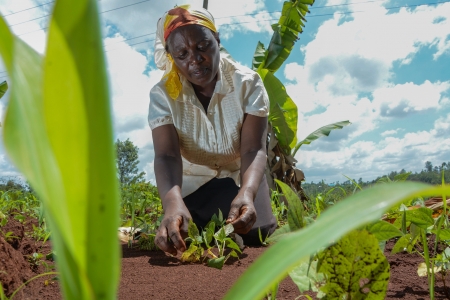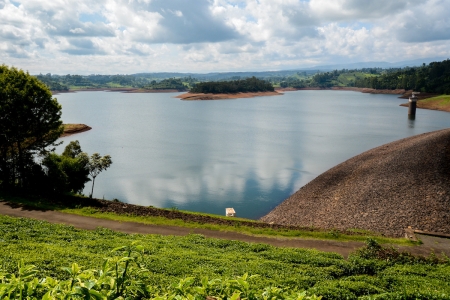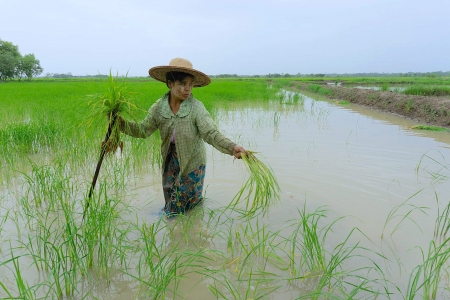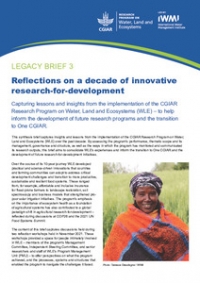Any entity that wants to enhance and maintain agrobiodiversity for sustainable food systems – whether it's a national government or a future-conscious private company – needs a way to track progress as time goes by. To make that kind of assessment possible, the Alliance of Bioversity International and the International Center for Tropical Agriculture (CIAT) developed the Agrobiodiversity Index, with support from the CGIAR Research Programs on Water, Land and Ecosystems (WLE) and Agriculture for Nutrition and Health (A4NH). Its adoption has contributed to changes in behavior and discourse by at least six private-sector partners.
The Agrobiodiversity Index is the first standard way of measuring agrobiodiversity in consumption, production and conservation. It helps assess performance and progress towards managing agrobiodiversity for sustainable food systems, through 3 commitment indicators, 4 action indicators and 15 status indicators. These are structured in three pillars supporting healthy diets, sustainable production and conservation, and also align with nine of the Sustainable Development Goals.
To make the Index actionable, the researchers have engaged with a variety of partners to co-develop the framework and tailor applications for their needs. Initially, most demands came from public partners, and the researchers responded with country profiles, co-investments, and agrobiodiversity layers for the policy-oriented Food Systems Dashboard.
More recently, private companies have taken a serious interest in Agrobiodiversity Index products for their monitoring, assessment and decision making. These users stand ready to play a catalytic role in food system sustainability. As they and their clients are global players, their actions can benefit consumers, producers and communities around the world.
Through a co-development process, the company HowGood has incorporated Agrobiodiversity Index layers in its sustainability assessment tool and applied this with at least one client, Danone, assessing and guiding the development of over 1,000 products with global supply chains. Also through co-development, the Food Accelerator FACT has incorporated agrobiodiversity measures into a supply chain tool to increase transparency and traceability of agrobiodiversity.
The company Wholechain has incorporated Agrobiodiversity Index metrics into its blockchain-based technology for traceability of supply chains and will apply this in Peru and Vietnam under an EU project. Another company, Olam, has been co-developing case studies applying Agrobiodiversity Index applications. Meanwhile, the Index has been included in the EU's Business@Biodiversity Platform metrics and aligned with the One Planet Business for Biodiversity Initiative of the World Business Council for Sustainable Development.

/index.jpg?itok=EzuBHOXY&c=feafd7f5ab7d60c363652d23929d0aee)


